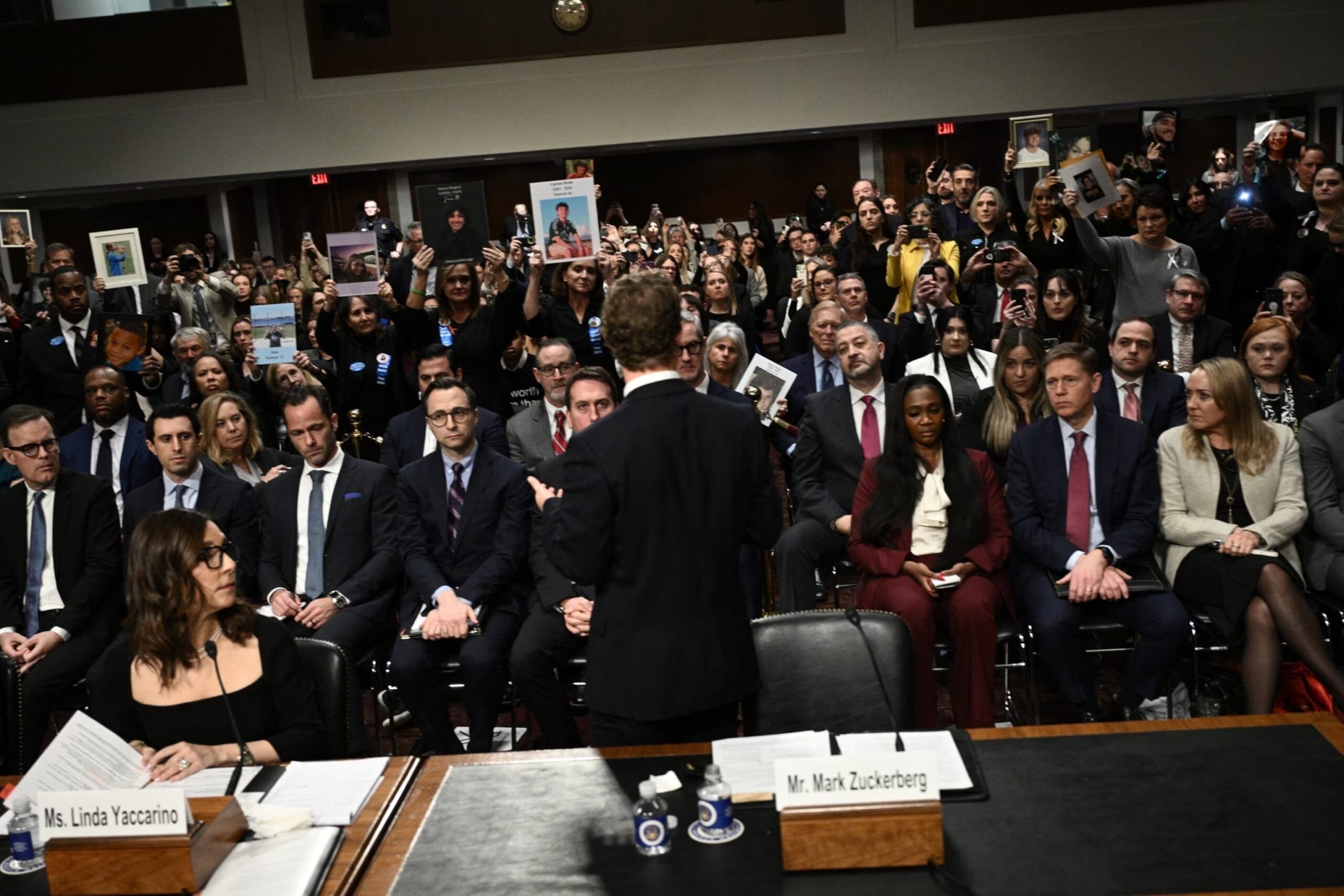- Judith Akatugba
- 0 Comments
- 646 Views
In front of hostile legislators in the US Congress on Wednesday, Mark Zuckerberg, the CEO of Meta, apologized in public for the risks that kids face on social media.
The US Senate Judiciary Committee held a session titled “Big Tech and the Online Child Sexual Exploitation Crisis,” during which the executives were questioned.
Tech companies are facing a wave of political backlash for their perceived failure to do enough to protect kids online from predators who pose a sexual threat or encourage adolescent suicide.
Read Also: The Best Beauty Regimen for Sensitive Skin
Zuckerberg was forced to stand during a tirade of interrogation and apologize to the victims’ families who had crowded the committee room.
He said, “I apologize for everything you have all had to go through.” “No one ought to experience the suffering that your families have endured.”
Senators also heard testimony from Linda Yaccarino of X, Jason Citron of Discord, Evan Spiegel of Snap, and Shou Zi Chew of TikTok.
“Mister Zuckerberg, even though I know you don’t want to admit it, you and the businesses that came before us have blood on your hands. “You have a product that is killing people,” Lindsey Graham, the senator, remarked.
“Keeping young people safe online has been a challenge since the internet began and as criminals evolve their tactics, we have to evolve our defenses too,” Zuckerberg said to the lawmakers.
He continued by saying that evidence indicated social media did not, “on balance,” negatively impact young people’s mental health.
The meeting’s chair, Senator Dick Durbin, responded, “I don’t think it makes any sense.”
He declared, “There isn’t a parent in this room who hasn’t had a child…who hasn’t changed right in front of (their) eyes” as a result of a social media “emotional experience.”
“As a father of three young children myself, I know that the issues that we’re discussing today are horrific and the nightmare of every parent,” Chew, the lawyer for TikTok, stated in the multistate complaint.
“I plan to put over $2 billion toward safety and trust. We have 40,000 safety professionals working on this problem this year alone, according to Chew.
Additionally, Meta reported that $20 billion has been invested since 2016 to make the platform safer, and that 40,000 of its staff focus on online safety.
In advance of the contentious meeting, Meta and X, the old Twitter, announced fresh initiatives.
The company Meta, which runs the popular social media sites Facebook and Instagram, announced that it will stop allowing strangers to send direct messages to minors.
Teens under the age of sixteen can now, by default, only receive messages or additions to group chats from users they currently follow or are connected to.
Additionally, Meta strengthened Facebook and Instagram content guidelines for teenagers, making it more difficult for them to see posts on eating disorders, suicide, or self-harm.
Senators singled out Meta and cited internal corporate records demonstrating Zuckerberg’s refusal to bolster the units responsible for monitoring juvenile risks on the internet.
The New York Times was told by Senator Richard Blumenthal that “the hypocrisy is mind-boggling.”
These records are a part of a larger case filed by around forty states against Meta collectively for alleged child abuse.
Web platforms are generally immune from legal liability with regard to content shared on their platform under US law.
Legislators want to enact more regulations to improve online safety, but their efforts have been thwarted by big tech’s vigorous lobbying and Washington’s political division.
The Kids Online Safety Act, or KOSA, is one current proposal that attempts to shield kids from algorithms that could cause them to experience anxiety or sadness.
Another proposal would mandate that social media companies confirm the age of account holders and forbid children under the age of thirteen.
“I don’t believe you will be able to resolve the issue. You’re going to need assistance from Congress, Senator John Neely Kennedy informed the executives.











